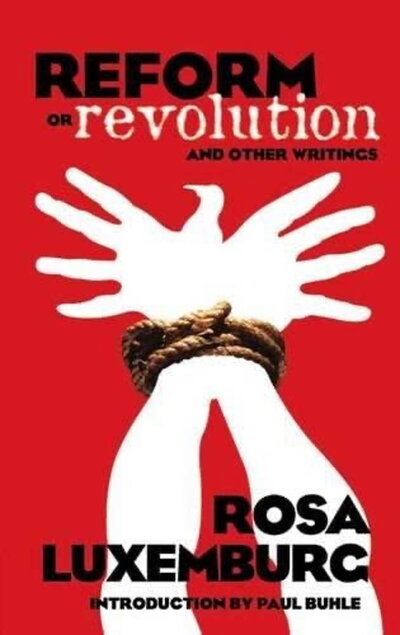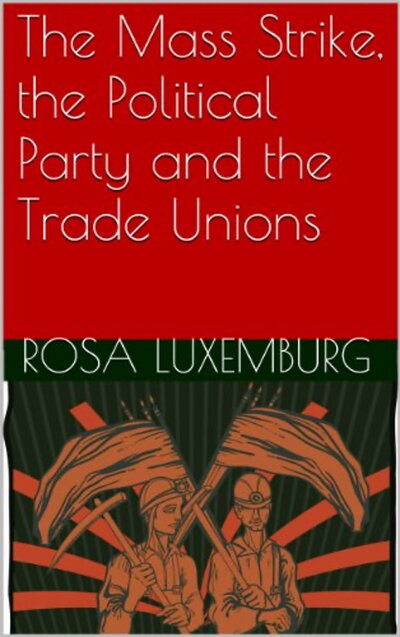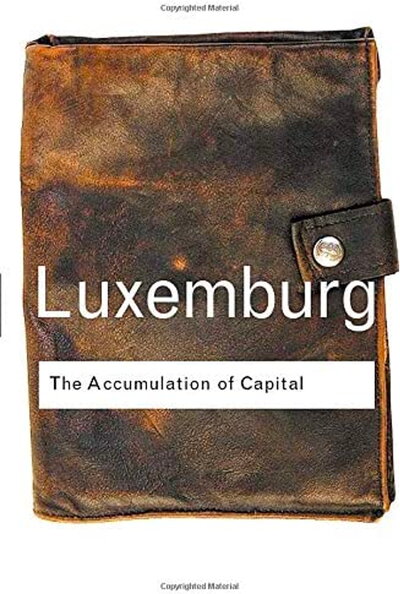In her lecture titled “Marxism, Imperialism and the Beyond of Capitalism: Re-reading Rosa Luxemburg” Amy Allen implores scholars to move beyond the developmental arc of history, a theory of history borrowed from Karl Marx that Luxemburg embeds in her idea of the beyond of capitalism. Allen wants to understand what Luxemburg means by the beyond or outside of capitalism that is present in many of her writings. She centers the project within a larger scholarly project on Marx’s theory of history and 20th-century Marxist thinkers.
Allen situates her lecture as a critique of Rosa Luxemburg amid the larger phenomenon that she terms a “Luxemburg Renaissance” in the field of political theory. In the last decade, many scholars have taken up Luxemburg for her revolutionary radicalism. In her day Luxemburg had ascended into the intellectual and political realms for her challenge to such high-ranking German Social Democratic Party members as Eduard Bernstein, and to such intellectuals of the time as Marx. Today, scholars and leftists alike admire her for her radical and revolutionary courage, and forlinking Marx’s critique of capitalism with imperialism. And yet, to this day, over 75% of her writings are not yet published in English.
Allen gains insight from Luxemburg because of the way the latter grounded her political thought on questions of European imperialism. Allen claims that as Marx has been contested and reworked within postcolonial, Black radical, and Indigenous critical frameworks, Luxemburg’s political thought on the intersections of capitalism and imperialism has also been viewed as fitting within a critical framework.
However, Allen also issues a caution regarding the growing scholarly interest in Luxemburg’s political thought. Allen sees Luxemburg as deeply committed to three central facets of Marx’s theory of history and the process of liberation from capitalism: necessary/inevitable, universal, and progressive. She reveals Luxemburg’s commitment to this theory of history by interpreting three of her major works:
- Reform or revolution? (1899)
- The Mass Strike (1906)
- The Accumulation of Capital (1913)
Beginning with Reform or Revolution? Allen describes how Luxemburg understood the project of socialism as a prerequisite to development. Through her critique of Eduard Bernstein, who was a proponent of capitalist reform in the German Social Democratic Party, Luxemburg ascended as a radical and revolutionary leader. As a leader, Luxemburg often made claims to a future ideal society, one that was “beyond” capitalism, which Allen found to be indicative of thinking of history in progressive and developmental terms.

In The Mass Strike, Allen explains how Luxemburg’s commitment to Marx’s theory of history as universal and progressive is demonstrated by Luxemburg’s linking of the French, German, and Russian revolutions as a “continuous chain of development” (The Mass Strike, p. 161). Allen proposes that this development narrative harkens to the eurocentrism and ideology of imperialism that divides and segments cultures—those that are beyond capitalism and those that are not.

Moving lastly to The Accumulation of Capital, Allen first shows how Luxemburg better articulated how capitalism would fall by answering a key question that Marx never does: How does capital accumulate? Allen explains that for Marx, the capitalist society was a totality and would be globally all-encompassing, but for Luxemburg, capitalism depended on societies that are not capitalist, making “primitive accumulation as structural necessity.” Allen highlights how Luxemburg understood the interdependence between capitalist and non-capitalist territories as the mode through which imperialism existed, both through soft forms like international finance and debt markets, but also brute militarism. Allen points to a quote where Luxemburg nontheless clearly remains committed to Marx’s theory of history:
“For capital, the standstill of accumulation means that the development of the productive forces is arrested, and the collapse of capitalism follows inevitably, as an objective historical necessity.” (Section 3, Chapter 29, The Accumulation of Capital).

Allen synthesizes Luxemburg’s ideas on “beyond” capitalism in three ways:
- After: There is an inevitable collapse of capitalism.
- Before: Capitalism emerged from historical conditions that required dividing the world into pre-capitalist and capitalist societies.
- Outside: The peripheral pre-capitalist societies that necessarily were incorporated into the function of capitalism.
Seen through this lens, Allen calls for skepticism of Luxemburg’s writings which are at once deeply committed to the problematic of Marx’s theory of history, but also deeply insightful for linking capitalism with imperialism. The Q&A section was filled with questions on how to make sense of Luxemburg’s contributions, while remaining open to criticism of her use of a progressive, development, and inevitable viewing of the history of capitalism.
Allen reminds us that Luxemburg was a person of her time, writing during crises of capitalism and major revolutionary movements, and living at the center of Berlin where strong workers’ rights movements flourished. She sees that Luxemburg’s radicalism and revolutionary style feel very contemporary for activists who are facing similar issues today. Although Luxemburg provides an important critique of Marx that recognized capitalism as inseparable from imperialism, when asked if Luxemburg can be considered an intersectional scholar, Allen would not consider her to be one. Allen interprets Luxemburg as too committed to Marx's “orthodox developmentalism” and class as the main mode of oppression.